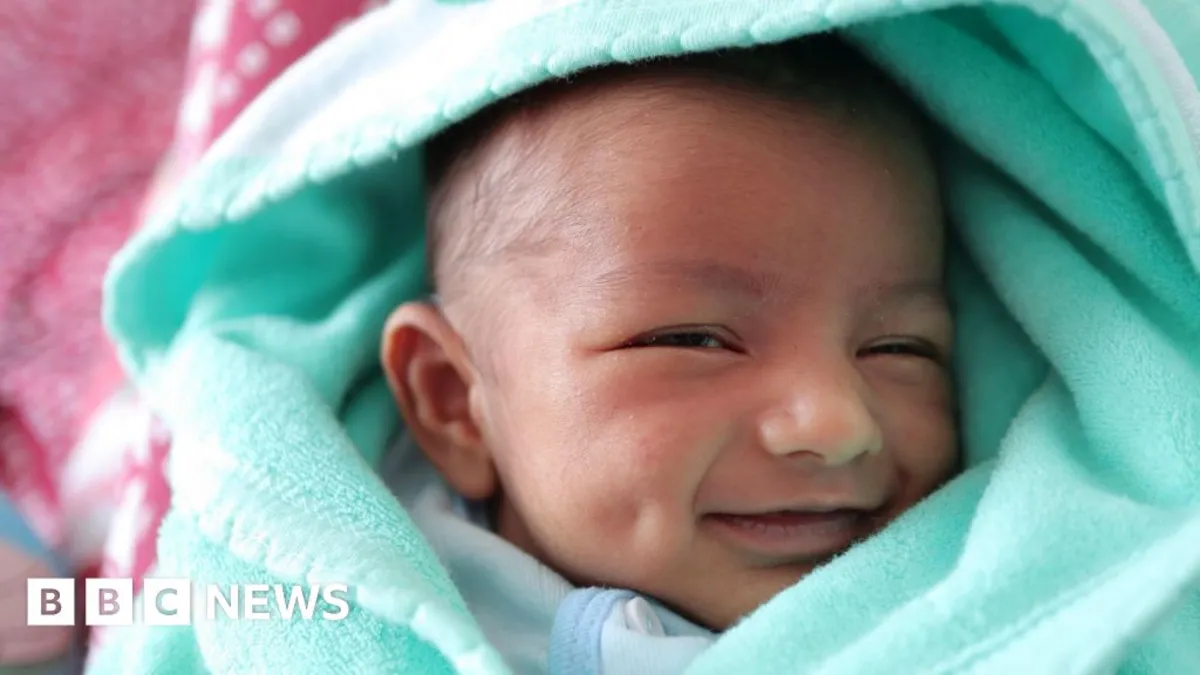
In a groundbreaking report released by the United Nations Population Fund (UNFPA), concerns have been raised about the unprecedented decline in global fertility rates. The report highlights that many individuals and couples worldwide are feeling the pressure of financial constraints and insufficient support systems, leading them to reconsider their family planning choices. This trend is evident in the experiences of families like that of Namrata Nangia, who lives in Mumbai with her husband and five-year-old daughter.
Namrata and her husband have been contemplating the idea of expanding their family since the birth of their daughter. However, they continually grapple with the pressing question: 'Can we afford it?' The financial responsibilities associated with raising a child in today's world are overwhelming. With rising costs for school fees, extracurricular activities, and even basic healthcare, many couples find themselves reconsidering their family size. Namrata reflects on her own upbringing, noting the stark contrast to current expectations where children are often enrolled in various activities such as swimming and art classes.
The UNFPA's survey, which involved over 14,000 participants across 14 countries—including South Korea, Italy, India, and the United States—reveals that Namrata's concerns are becoming a global norm. The agency's findings indicate that one in five individuals are either currently childless or do not anticipate having their desired number of children due to financial limitations and the challenges of finding a suitable partner.
Dr. Natalia Kanem, head of UNFPA, emphasizes that the decline in fertility rates represents a real crisis. Most respondents expressed a desire for two or more children, yet many feel that they are unable to realize their family aspirations due to economic pressures. This sentiment is echoed by demographic expert Anna Rotkirch, who notes that there is a significant trend of individuals undershooting their fertility ideals. Surprisingly, 31% of respondents over the age of 50 reported having fewer children than they had wanted.
While the survey is a preliminary effort in a broader investigation set to include 50 countries later this year, it has already highlighted some crucial findings. Notably, a staggering 39% of participants identified financial limitations as a barrier to having children. South Korea reported the highest percentage at 58%, while Sweden had the lowest at 19%. Interestingly, only 12% of respondents attributed their childlessness to infertility, with higher rates in countries like Thailand (19%) and the United States (16%).
This report marks a significant shift for the UNFPA, which has traditionally concentrated on issues related to individuals having more children than they desired. Prof. Stuart Gietel-Basten, a demographer at the Hong Kong University of Science and Technology, notes that the UN is now actively addressing the challenges posed by low fertility rates. However, he urges caution against panic-driven policies that may arise from perceptions of overpopulation or shifting demographics.
In addition to financial constraints, the survey revealed that the lack of time is a significant barrier to parenthood for many. For Namrata, this resonates deeply; she spends at least three hours commuting each day, leaving her exhausted and feeling guilty about not spending enough time with her daughter. This struggle underscores the complex interplay between economic, social, and personal factors that influence family planning decisions.
As the UNFPA continues to explore these critical issues, it becomes increasingly clear that addressing the needs of families and supporting their aspirations for children is essential in navigating the challenges posed by declining fertility rates worldwide.